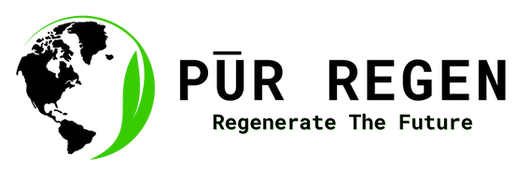In the quest for sustainable solutions to environmental challenges, the potentiality of harnessing the byproducts of the "Endcycling" process offers a promising avenue for innovation and economic development.
The frass, or excrement, produced by superworms during the biodegradation of non-recyclable plastics can serve as a valuable resource for agricultural applications.
Rich in nutrients and organic matter, frass can be utilized as a fertilizer to enhance soil fertility and promote plant growth. Additionally, it can serve as a substrate for cultivating oyster mushrooms, providing a non-toxic and nutritious food source while simultaneously reducing waste.
Furthermore, the fruiting bodies of oyster mushrooms can be harvested for culinary purposes, offering a sustainable and healthy alternative to traditional food sources.
Moreover, the mycelium, the vegetative part of the fungus, can be molded into a biodegradable agar substitute for polystyrene packaging, contributing to the reduction of plastic waste in landfills and oceans.
The economic benefits of the "Endcycling" process extend beyond agricultural and food production. Superworms themselves can be utilized as animal feed, providing a protein-rich source of nutrition for livestock and poultry.
Additionally, every stage of the "Endcycling" process, from plastic biodegradation to mushroom cultivation and mycelium packaging, presents opportunities for job creation, entrepreneurship, and revenue generation. However, realizing the full potential of "Endcycling" requires a paradigm shift in mindset and a concerted effort from professionals, policymakers, and municipalities. It entails embracing innovative approaches to waste management and fostering collaboration between stakeholders in the public and private sectors.
By supporting research and development initiatives, providing funding and incentives, and implementing supportive regulatory frameworks, municipalities can play a crucial role in facilitating the adoption and scale-up of endcycling technologies.
In conclusion, the potentiality of utilizing the byproducts of the "Endcycling" process for agricultural, food, and packaging applications underscores the transformative power of sustainable innovation. By harnessing the inherent value of waste materials and embracing a holistic approach to resource utilization, we can create a more resilient, equitable, and environmentally sustainable future.
References:
• S. M. Kim et al., "Evaluation of frass as a potential organic fertilizer for greenhouse crops," Journal of Applied Horticulture, 19(1), 2017.
• K. Y. Kim et al., "Utilization of vermicompost produced from cattle manure, food waste, and bedding material in plant nurseries," Horticulture, Environment, and
Biotechnology, 52(5), 2011. • J. S. Cripps et al., "Mycelium biofabrication: a review of the fundamentals and applications of fungal tissue engineering," Applied Microbiology and Biotechnology, 103(19), 2019.

